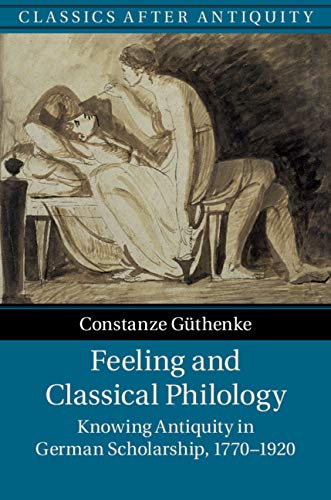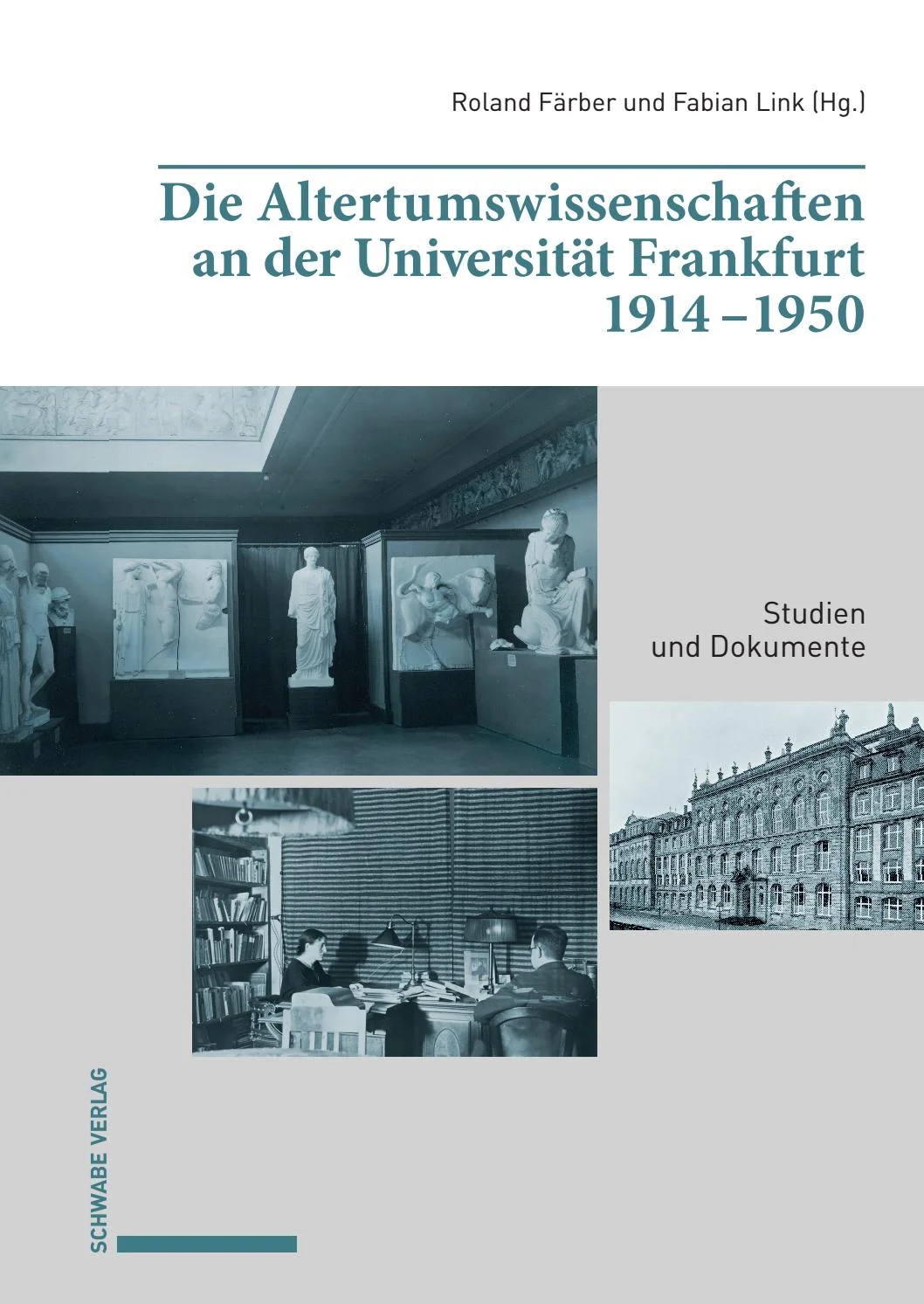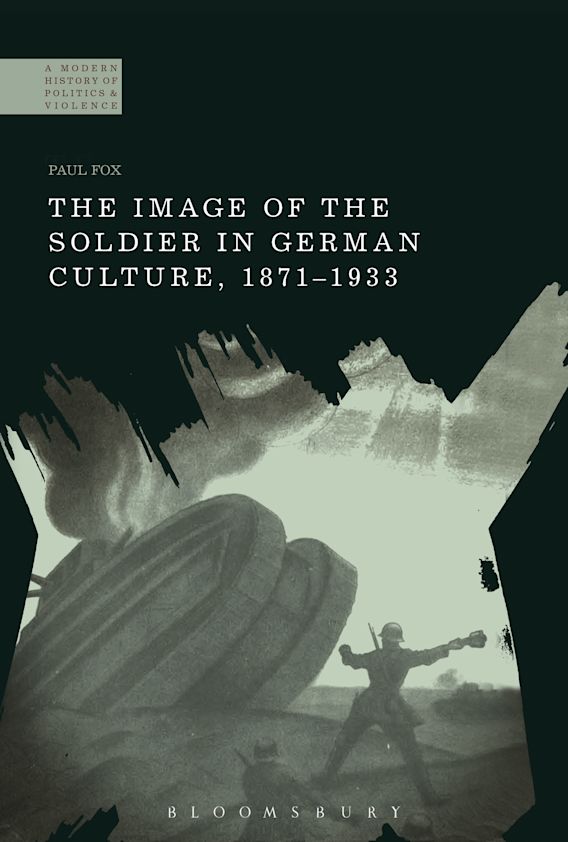Work
 Review of 'Making Prussians, Raising Germans' by Jasper Heinzen
Review of 'Making Prussians, Raising Germans' by Jasper HeinzenReview of State-Building after Civil War, 1866-1935, by Jasper Heinzen (Cambridge: Cambridge University Press, 2017), in German History 35 (3), September 2018, pp. 454-6.
Jasper Heinzen’s first monograph aims to reframe historical interpretations of ‘1866 and all that’, focusing on the ramifications of civil war within Germany, rather than privileging external conflicts with Italy and Austria. What consequences did enduring tensions between Prussian imperial and provincial particularist ambitions have for Germany's eventual stability?Read more...
Presented at Approaching War (Europe): Childhood, Culture and the First World War, 1880-1919, University of Newcastle, 16-17 March 2013.Read more...
 Classics and National Socialism
Classics and National SocialismReview of Klio und die Nationalsozialisten: Gesammelte Schriften zur Wissenschafts und Rezeptionsgeschichte (Wiesbaden: Harassowitz, 2017), published in The Classical Review 69 (2), October 2019, pp. 666-7.
Volker Losemann’s work has rightly been hailed as pioneering in its efforts to bring to light the ideological distortions and academic opportunism to which Classical and ancient historical scholarship were subjected during the Third Reich. Read more...
 Review of 'German Philhellenism' by Damian Valdez
Review of 'German Philhellenism' by Damian ValdezReview of Damian Valdez, German Philhellenism: The Pathos of the Historical Imagination from Winckelmann to Goethe (Basingstoke: Palgrave Macmillan, 2014), in Journal for Eighteenth-Century Studies 40 (1), March 2017, pp. 138-9.
Damian Valdez’s monograph provides a keen dissection of the clashing currents of idealism and historicism which shaped German thought on ancient Greece during the eighteenth century, placing idealism – and particularly idealists such as Goethe, Herder, Schlegel and Winckelmann – squarely within their respective contexts.Read more...
 Greek Tragedy in Germany
Greek Tragedy in GermanyReview of Erika Fischer-Lichte's Tragedy's Endurance: Performances of Greek Tragedies and Cultural Identity in Germany since 1800 (Oxford: Oxford University Press, 2017), in The Classical Review 68 (1), April 2018, pp. 274-6.
This monograph provides a salutary reminder of the ways in which every age and nation has tended to remake the ancient Greeks in its own image. Yet it is also a celebration of Greek tragedy’s ability to withstand all the manifold fragmentations and instances of critical or interpretative violence to which it has been subjected over the millennia.Read more...
 Review of 'Feeling and Classical Philology' by Constanze Güthenke
Review of 'Feeling and Classical Philology' by Constanze GüthenkeReview of Constanze Güthenke, Feeling and Classical Philology: Knowing Antiquity in German Scholarship, 1770-1920 (Cambridge: Cambridge University Press, 2020), Journal of Hellenic Studies 142, November 2022, pp. 461-2.
What are the implications of ‘the erotics of pedagogy’ in a post-Weinstein world? Constanze Güthenke’s new monograph does not explicitly answer this question – but it does contribute to an ongoing disciplinary debate about the (potentially toxic) discourse of scholarly passion which has long and silently underpinned the ideal of Altertumswissenschaft.Read more...
 Review of 'The Greco-German Affair in the Euro Crisis' by Claudia Sternberg et al.
Review of 'The Greco-German Affair in the Euro Crisis' by Claudia Sternberg et al.Review of Claudia Sternberg (et al.), The Greco-German Affair in the Euro Crisis: Mutual Recognition Lost (Basingstoke: Palgrave Macmillan, 2018), published on the UCL European Studies Blog, 29 October 2018.
This timely, concise, richly illustrated and highly readable survey by Claudia Sternberg, Kira Gartzou-Katsouyanni, and Kalypso Nicolaïdis provides a nuanced approach to the recent vicissitudes of the Greco-German relationship.Read more...
 Review of 'Die Altertumswissenschaften an der Universität Frankfurt 1914-1950'
Review of 'Die Altertumswissenschaften an der Universität Frankfurt 1914-1950'Review of Roland Färber and Fabian Link (eds), Die Altertumswissenschaften an der Universität Frankfurt 1914-1950, (Basel: Schwabe Verlag, 2019), Germania: Anzeiger der Römisch-Germanischen Kommission des Deutschen Archäologischen Instituts 100, 2022, pp. 455-6.
Roland Färber and Fabian Link’s edited collection of essays on the history of classical studies and Altertumswissenschaft at the University of Frankfurt during the first half of the 20th century is a highly unusual volume.
 Review of 'Philanthropy, Civil Society, and the State in German History, 1815-1989' by Thomas Adam
Review of 'Philanthropy, Civil Society, and the State in German History, 1815-1989' by Thomas AdamReview of Philanthropy, Civil Society, and the State in German History, 1815-1989, by Thomas Adam (Rochester, NY: Camden House, 2016), in the Modern Language Review 112 (3), July 2017, pp. 738-40.
The aim of this survey of philanthropy and its entangled relationship with the State in Germany is twofold. Firstly, Adam emphasises the indispensability of private donations and endowments to the maintenance of social and civic institutions in the spheres of education, culture, and poor relief. Read more...
 Review of Paul Fox, 'The Image of the Soldier in German Culture'
Review of Paul Fox, 'The Image of the Soldier in German Culture'Review of The Image of the Soldier in German Culture, 1871-1933 by Paul Fox (London: Bloomsbury, 2018), published in Central European History 53 (3), September 2020, pp. 664-5.
Paul Fox’s recent study, which takes a longue-durée approach to popular representations of Prusso-German militarism, tracing continuities from the mid-nineteenth century to the interwar period, purports to break substantial new ground.Read more...
